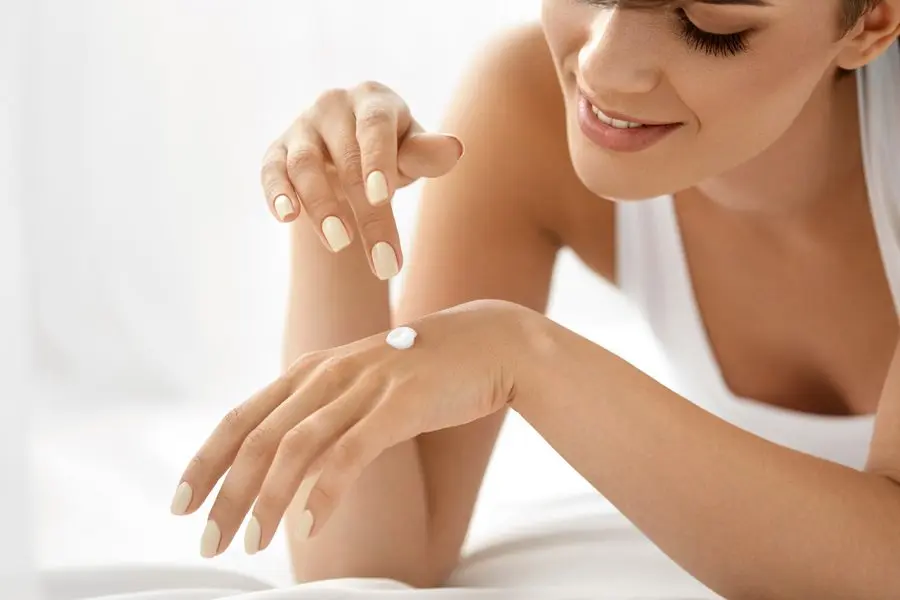
We bust common winter skin care myths
Contents:
Finding a panacea for dry, wintery skin is a never-ending feat. As skincare editors, we're always on the lookout for homemade and dermatologist-approved products. However, along the way, we stumbled upon a few dubious theories that got us thinking about things like using lip balms to save dry lips, taking hot showers, and all the other things we do in the winter. We set the record once and for all with the help of certified dermatologist and founder of Visha Skincare, Purvishi Patel, MD. Ahead, we debunk common winter skin care myths.
Winter Skin Myth #1: You don't need sunscreen in winter.
Truth: Of all the beauty myths, this one makes us cringe the most. No matter what season it is, you should always — we repeat: always — wear an SPF. “UV exposure occurs in both summer and winter,” says Dr. Patel. “Exposure to the sun may not seem the same as in winter, but UV light reflects off surfaces and still affects the skin. Wearing an SPF of at least 30 is recommended daily and all year round.” Here's your doctor's prescription: Apply sunscreen. Need a recommendation? Get La Roche-Posay Anthelios Melt-in Sunscreen Milk SPF 60, a fast-absorbing sunscreen milk that can be applied to the face and body.
Winter Skin Myth #2: Lip Balms Make Lips Drier
Truth: This popular belief has to do with constantly applying and reapplying lip balm throughout the winter as a method of moisturizing dry lips. The question is, if we have to reapply so many times, does it really make our lips drier? Simply put, yes, some lip balms can do this. "Some lip balms contain menthol, camphor, or other cooling agents that cool by evaporating water from the surface of the skin and can make lips feel drier," says Dr. Patel. Solution? Don't skip reading your lip balm ingredient list. Choose with moisturizing ingredients like Kiehl's No. 1 Lip Balm. It contains hydrating squalane and soothing aloe vera, both of which are known to help repair skin, keeping it soft, supple and hydrated.
Winter Skin Myth #3: Hot showers don't hurt your skin.
Truth: While we wish it were, Dr. Patel says hot showers in winter can lead to dry, eczema-like skin. “Hot water quickly evaporates from the skin, and when water is lost, cracks are left on the surface of the skin,” she explains. "When nerves under the skin are exposed to air from cracks in the surface, it causes itching." So, like it or not, if you want to avoid dry and itchy skin, taking a warm shower is the best thing to do.
Winter Skin Myth #4: Exfoliating makes skin drier
Truth: Here's the thing, Dr. Patel says skin dries out more in the winter due to hot showers and general heating. This causes the water on your skin to evaporate faster, causing cracks to form on the surface of your skin. “The more dead cells on the skin, the deeper the cracks,” she says. “If the nerves on the surface of the skin are exposed to air from these cracks, it results in itching and redness.” To avoid itching and redness, you need to exfoliate. “Exfoliation helps to remove dead skin cells and reduce the depth of cracks on the surface of the skin,” explains Dr. Patel. She recommends Visha Skincare Sugar Shrink Body Scrub, an exfoliating sugar scrub that hydrates skin with added avocado oil. If you're looking for a facial scrub, we recommend the SkinCeuticals Micro Exfoliating Scrub for its gentle exfoliation that doesn't strip skin of moisture.
Winter Skin Myth #5: The thicker the moisturizer, the better.
Truth: Little did you know that thicker moisturizers are only better if you're exfoliating your skin. “If thick balms are constantly applied to unexfoliated skin, dead cells will simply roll off and increase the likelihood that the skin will crack,” says Dr. Patel. So, before you apply an intensive moisturizer, be sure to exfoliate.
Leave a Reply